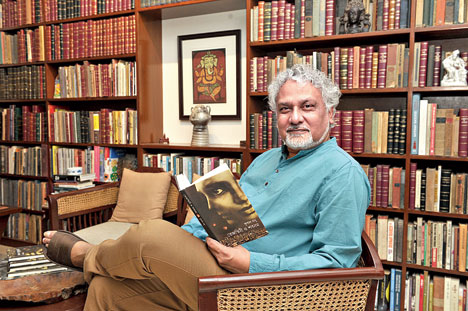
Hemis — A Novel by Madhu Tandan belongs to that group of books that are suspended somewhere between being self-help case studies and journey novels. It follows the story of Ajay Kapur, an atheist, workaholic, IIT Delhi-grad who travels to Ladakh for a trek amidst rising tensions in his marital relationship with Swati, who suspects infidelity on his part with his colleague and her former best friend, Akanksha.
In Ladakh he meets the intense Anna, a blue-eyed blonde American scholar searching for a lost manuscript that allegedly proves the theory of Christ’s resuscitation after crucifixion and his subsequent journey to Kashmir, and the abbot of Hemis monastery, a man who has grown more with damage than with age. Tandan interweaves these three plotlines, working on the underlying themes of lost love, spiritual introspection and acceptance of unconscious truths.
The first striking feature of the book is her provocative descriptions of the landscape that make one want to plan a trip there soon. The environment mirrors Ajay’s state of mind as he acclimatises himself to the unfamiliar lifestyle of the monks while stranded in the monastery during the flashfloods of 2010. Dream-like sequences featuring meetings with vague monks, including one waving a human thigh bone and predicting the floods, add to the spiritual feel of the novel. Later in the novel, it is found that for all his stoicism, the abbot too has a “past” — though quite conventional — which gives the reader a fresh perspective on acceptance of truths and honesty as a first step towards personal growth.
While bordering on the didactic at times, Hemis asks the right questions rather than providing generalised answers, and Ajay’s storyline resonates with anyone whose Facebook relationship status says “It’s complicated”. Perhaps Tandan’s feat lies in her clever coalescence of the three storylines in a way that elevates individual problems of guilt, remorse, and dwindling love to a scale of universality.











